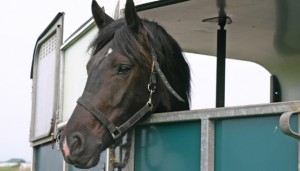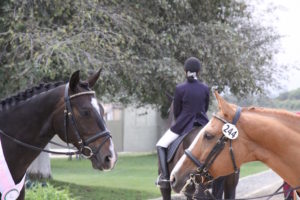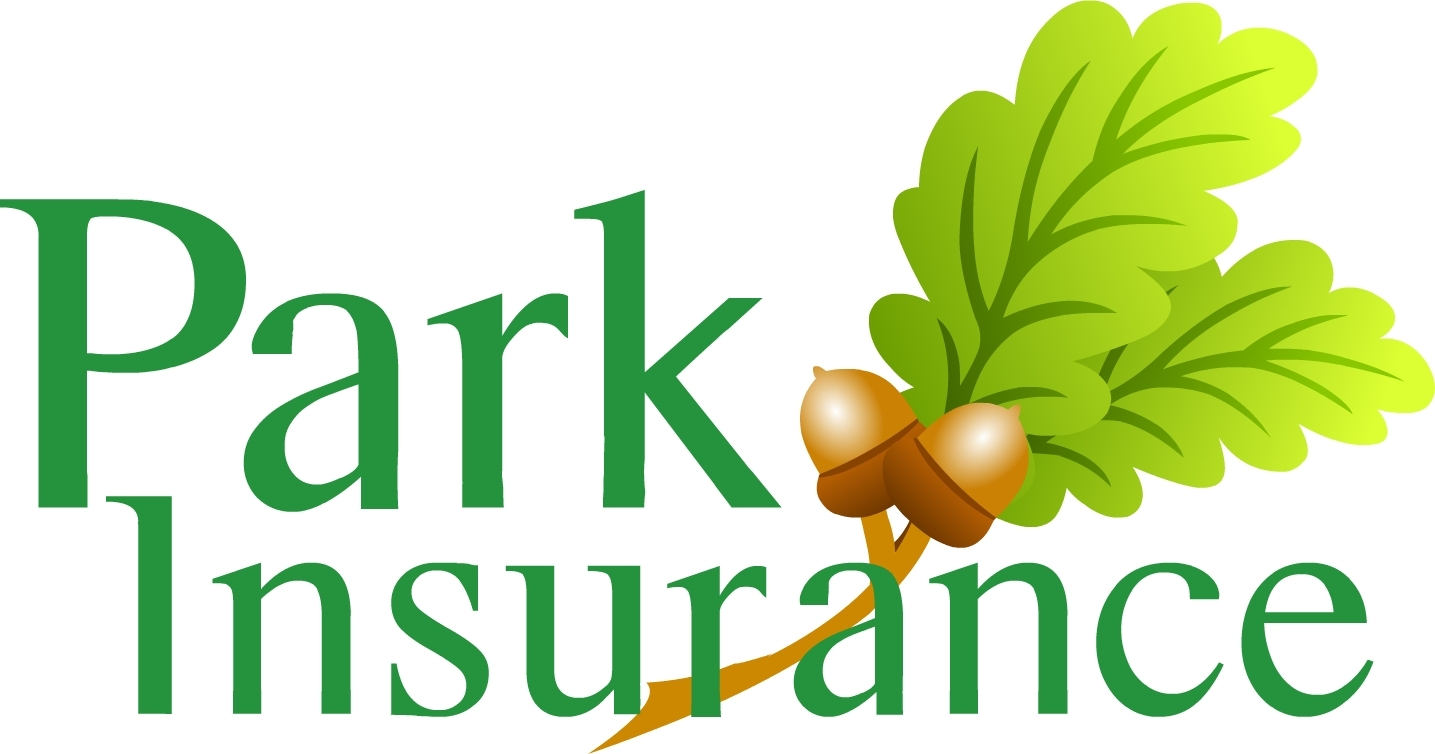VIEW OUR COMMERCIAL
As seen on TV

CHOOSE THE EASY OPTION FOR YOUR INSURANCE, WE’LL GET YOU A QUOTE IN NO TIME AT ALL.
Posts for:
When you own a horse or pony, there’s a lot to learn, including the rules around towing a horsebox. Whether you’re heading to competitions or the vet, there are strict rules around towing that you’ll need to follow. If you don’t you could put your horses and other road users at risk. And it could leave you facing a big hit on your finances. So, to make getting it right easier, we’ve put together this quick guide on towing a horsebox.
What are the rules about towing a horsebox?
Firstly, the most important thing to discover is if your vehicle can legally tow your trailer. The waters governing the legalities around towing horseboxes can seem considerably muddy. There is no one-size-fits-all rule. Instead the vehicle/trailer combination that you have will dictate whether you need a special licence to legally tow it. And the date that you passed your driving test will also affect what licence you’ll need.
The rules are there to keep your horses, as well as other road users, safe. It means that you’ll need to ensure that the vehicle you use to tow your horsebox has enough power to do the job. You can find out whether your vehicle is capable of towing safely by checking the MAM.
What is MAM?
MAM stands for Maximum Authorised Mass. This is the maximum weight that your vehicle can weigh when it is loaded (including the towing weight) when you have a standard car driving licence.
What are the driving licence categories for towing a horsebox?
Briefly, the driving licence categories for towing a horsebox are:
- If you passed your category B licence (the standard driving licence) on or after January 1st 1997:
- You may tow a trailer with a MAM not exceeding 750kg (e.g. a small garden trailer). If you do pull a trailer with a MAM of over 750kg you must ensure that:
- The actual weight of the vehicle and trailer does not exceed 3,500kg
- The actual weight of the trailer may not exceed the unladen weight of the drawing vehicle – so your trailer cannot be heavier than the vehicle towing it.
If you are towing a trailer heavier than that, you’ll need:
- A Category B+E licence – this is the most useful for towing horsebox trailers. It allows you to tow a trailer with a MAM of up to 3,500kg (i.e. a horse trailer). To get this, you’ll need to take an extra driving test (see below)
- Or, a Category C1 licence – For vehicles that have a MAM of over 3,500kg but less than 7,500kg.
If you passed your category B licence (the standard driving licence) before January 1st 1997:
- You have entitlement to drive C1+E with a ‘107’ restriction. This limits the actual weight of the combination of both towing vehicle and trailer to 8.25 tonnes (or 8250kg). This weight limit is normally ample for towing any horsebox. But you’ll still need to check that your vehicle is powerful enough to safely tow your horsebox.
If you’re unsure as to whether your licence allows you to pull a horsebox then check with the DVLA.
How do I find my vehicle’s MAM?
Your vehicle’s MAM may be listed on your vehicle’s VIN (vehicle identification number) plate, which is normally under the bonnet or inside the driver’s door. Alternatively, you may find this information in you’re vehicle’s handbook, or get in touch with the manufacturer.
How do I get a Category B+E licence?
In most cases, horseboxes exceed the standard MAM limits, so you’ll need to pass your car and trailer driving test. This test is also sometimes known as the B+E test. To take it, you’ll need a full car driving licence but you won’t have to take your theory test again.
For heavy combinations of vehicle and trailers, or large motorised horseboxes, you’ll need to take your C1+E driving test. This allows you to drive vehicles and trailers with a combined weight up to 12,000kg MAM.
Is your car big enough to tow?
Even if you think you meet the legal requirements, stop and think if your car is suitable for towing a horsebox. Remember, if you’re planning to take your horse to compete, you may need to drive in muddy fields. If your car is too small or doesn’t have enough power it could be dangerous.
What happens if I don’t have the right type of licence?
Failure to have the right licence and the right car or horsebox insurance can result in hefty fines, points on your licence and, in some cases, jail terms.
Do I need horsebox insurance?
Although you don’t legally have to take out independent insurance for a towed horsebox, it is wise.
Horsebox insurance for towed horseboxes can cover everything from the theft or damage of your horsebox, to additional cover for the contents such as your tack, saddles and personal possessions.
Remember, if you drive a motorised horsebox, then vehicle insurance is a legal must-have.
Do I need specialist horsebox breakdown cover?
Standard car breakdown cover can be used if your car breaks down when you’re towing your horsebox. But, this is only helpful if your car can be fixed at the side of the road. If it can’t, your car breakdown company won’t have the capacity to tow your car, trailer and horses to safety. Specialist horsebox breakdown cover gives you peace of mind you can get safe onward travel for your horses as well as secure overnight stabling if needed. In many cases, it is cost effective to include this with your horsebox insurance package.
Horsebox cover for European travel
If you compete your horse overseas, make sure that you’re covered to tow or drive your horsebox abroad.
What does our horsebox insurance cover?
At Easy2Insure, we make it easy to get the right level of insurance cover for your horsebox at the best price. Our horsebox insurance provides cover whilst your horsebox or trailer is at home, on the road or at a competition. And you can opt for additional extras to include cover for tack and equipment, as well as getting you home again should your box be stolen or damaged whilst at a show.
Our competitive policies cover:
- Horsebox insurance for a boxes of up to four stalls
- Insurance for a motorised horsebox with up to four stalls
- Trailer insurance
- 4×4 / towing vehicle insurance
- Private car No Claims Bonus acceptable
- Protected No Claims Bonus
- Discounts for limited mileage
- Discounts for security / immobilisers
- Horsebox breakdown cover options
Why should I choose Easy2Insure as my broker?
As an independent insurance broker, Easy2Insure, has access to a wide variety of different horsebox insurance policies to meet every need. We provide insurance for all types of horseboxes, including motorised horseboxes and trailers. Part of the highly respected Park Insurance Group, we have over 20 years’ experience in sourcing specialist insurance deals for our customers. And because we’re based online, our overheads are lower, so we can pass the savings directly onto you.
Our position as preferred broker to many of the UK’s largest insurance providers also means that we can source deals and packages that are uniquely tailored to suit your specific requirements.
In conclusion
Horseboxes, even second-hand loose boxes, can cost thousands of pounds to replace if they’re stolen or damaged. Add to that the cost of covering your tack and equipment, and the small premiums you’ll pay for your horsebox insurance every month are a worthwhile expenditure. Especially when compared to the amount you’d need to pay out to replace uninsured boxes or tack and the stress and worry that not being insured could cause.
Call our friendly team for free on 0800 917 9522 or get in touch. Let us find you the best horsebox insurance quote that is right for you, your horse and your budget.
Whether you’re building your new urban dream home or own fields of livestock, land insurance gives you peace of mind. If someone hurts themselves on your private property they can sue you. Land insurance (also known as property owners insurance) covers you financially for any legal costs you may face. But how do you know you’re getting the cover you need at the best price? Our quick guide tells you what you need to know before you buy.
Do I need land insurance?
If you own any pieces of land, it’s worth considering land insurance. That’s because you could be sued by someone if they injure themselves on your property. It’s particularly advisable if you have any public access on your land, for example, there’s a footpath or bridleway.
But even if there is no given public access, land insurance is worth thinking about. The Countryside and Rights of Way Act gives the public the freedom to roam of some private land. And someone can make a financial claim against you even if they are trespassing.
Landowner liability to the public
As the landowner, you are not liable for injury unless you deliberately set out to create risk or are ‘reckless’ about whether a risk is created. However, ‘reckless’ can be hard to define and it is often left to the courts to decide matters. Unfortunately, in our ‘no-win no-fee’ compensation culture, claims for injury are all too frequent and it can be costly to defend your case.
Is land insurance just about protection from being sued?
Land insurance primarily covers you for public liability – so will pay out legal costs if a claim is made against you. But you could also add protection for any items on the land. For example, you could opt for cover that will pay out if items, such as fencing or gates, on the land are damaged or stolen.
What types of land can land insurance cover?
Land insurance can cover any type of land, including land with outbuildings such as barns or hazards like ponds. Your broker, like Easy2Insure, can tailor your land insurance to your specific needs. So whether you’ve got a woodland with a footpath running through it, a private car park, or a building plot, you can get the right level of cover for your individual needs.
Multiple or single party land insurance policies
If you live in a property with a shared access driveway, you may want to consider taking out a multiple-party land insurance policy. Speak to your broker for more details.
How much will land insurance cost?
This figure will vary depending on the location, the potential hazards on the land, access, and the size of the area.
How do I get cheap land insurance?
The old adage goes you get what you pay. Generally the more you spend, the greater peace of mind you’ll buy. Whilst you should never skimp on any insurance, you can save yourself money by shopping around for the best value deal, or asking a broker to do this for you. You can also save cash on your premium by opting for higher excesses. Or it could be appropriate to reduce the indemnity (the maximum amount that is paid out for a claim) if your land is lower risk. Always ask your broker first for expert advice on if this could be relevant for your situation.
Choosing the right land insurance broker
At Easy2Insure we have 30 years experience arranging specialist land insurance policies for people like you. Our expert advisers can put together a bespoke deal. That will give you the level of cover that you need at the best price. For more details call 0800 9179522 or get a quote.
Whether you own a chalet in the Alps or a Cornish cottage, holiday home insurance gives you peace of mind. Designed specifically for properties that are not your main home, it helps to protect your investment and prevent unexpected bills. But are you confident you’re getting the level of cover you really need at the best price? Read our five-minute checklist to see if you could save money on your holiday home insurance:
1)A higher excess does not always mean a cheaper premium
If you’re looking to reduce your premium, you might consider increasing your excess (the amount you automatically pay when you make a claim). It’s worth checking this option with your broker first though as sometimes a higher excess won’t significantly reduce costs.
2)Save money when you shop around
Holiday home insurance is not as straightforward as standard home insurance as the risks are higher. Not every insurance company is willing to take on that risk, and will quote higher premiums to reflect this. You might not know where to start when it comes to shopping around for holiday home insurance, but it’s worth the effort.
Like all insurance, you can make big savings on your holiday home insurance if don’t just accept your renewal quote. If you don’t have the time to ring around for quotes, use a specialist broker like Easy2Insure to do the leg-work for you. Expert brokers know the ins and outs of the industry and can often negotiate better rates than you’ll be able to find yourself on the high street.
3)Check if keys are included to avoid a shock
Sometimes it’s not until too late that you discover that your insurance is not as comprehensive as you thought. For example, lost or stolen keys are not always part of every holiday insurance policy. But replacing these, and changing the locks to ensure your holiday home remains secure, can be costly.
4)Protect yourself from travel expenses
Your holiday home may be a long way away, but if something happens you may need to be on site to sort it out. Does your insurance pay for any emergency travel to your holiday home? If you need this, make sure it’s included in your premium.
5)Specialist liability insurance to guard you from legal costs
If you rent your holiday home to others, public liability insurance is a must to protect you from legal claims for injury or damage to property. Claims for injury are all too easy to bring in our no-win, no-fee world. And compensation payments can run into high figures, not to mention the legal fees you’ll be faced with. Save money in the long run by making sure that you have this liability cover included in your insurance package.
6)Shield your finances from loss of income
Do you rely on your income from your holiday home? If so, consider taking out loss of rent insurance, which pays out if you are unable to rent your holiday home for a period of time.
7)Accidental damage cover for peace of mind
Whether you let your holiday home to others or it’s just for you and the family, you never know what might happen. Accidental damage cover gives you peace of mind that you can pay to replace contents.
8)Security features can reduce your premium
Increasing security can reduce the risk of your holiday home being targeted by thieves. Many insurers will give a discount for extra security, like CCTV. If you’ve invested in this equipment, make sure you tell your insurance broker so they can negotiate a better deal on your behalf.
9)Home Emergency cover to deal with crisis situations
If you let your holiday home out to guests, it can be reassuring to know that if something does go wrong, like the water pipes burst, they can get it fixed right away. With home emergency cover as an add-on to your insurance, you can leave guests details of a 24-hour contact for an emergency plumber or other expert.
Cheap holiday home insurance you can count on
We believe in great value insurance. That means you pay the lowest price for holiday home insurance that you can rely on, with no nasty surprises or exemptions in the small print. Call our expert property team on 0800 917 9522 or fill in the form to get a free quote on your holiday home insurance today.
1) Big data
What is it?
Big data is the concept of using more digital sources of information to build a clearer, more tailored picture of the insured risk. Currently, buying insurance mostly relies on you filling in long forms or answering multiple questions. The use of big data eliminates this as your insurance company is able to gather the data they need themselves. It also means the information gathered should be more accurate and the risk of fraud is reduced.
What does this mean for you?
- Less hassle – your insurer gathers the details about you, saving you the time as you don’t have to
- Lower insurance prices for you if you pose a lower risk. But higher prices if you don’t!
2) Internet of things
What is it?
Smart homes and smart cars can add up to smarter insurance too. Technology means we now have home systems that let you check what your pet is doing or notify you if there’s a suspected water leak. You can take action quickly to stop any potential problem from getting worse. And that means fewer claims and lower cost claims.
What does this mean for you?
- Some insurance companies already offer discounts to customers with smart home technology installed
- For car insurance, telematics is the equivalent. It records things like how you drive and when and reports this back to your insurance company. The result? Cheaper insurance for safer drivers (but higher costs for drivers with a riskier driving style).
3) Drones
What is it?
Claims adjusters can’t always gain immediate access to a property damaged by flood or fire. And that can mean the claims process takes even longer. Drones are increasingly being flown over buildings to make assessments.
What does this mean for you?
- A speedier claims process that can help to ensure repairs start sooner too.
4) Artificial intelligence
What is it?
Computer power is being harnessed by insurance companies to support staff. Computers can analyse hundreds of sources of data, including social media, in seconds to detect fraud and determine risk.
What does this mean for you?
- Using a computer can be a lot quicker than brainpower alone – and that can mean faster settlements
- Reducing insurance fraud could help to bring down the cost of premiums.
5) Blockchain
What is it?
Blockchain technology allows information to be shared but not copied. It was originally devised for Bitcoin but is now finding a use amongst insurance companies. It gives these companies quick access to reliable data, reducing fraud and speeding up processes.
What does this mean for you?
- Blockchain processes are quick and efficient. Multiple claims for the same event can be effectively blocked, reducing fraud and hopefully reducing insurance costs for law-abiding customers.
Cheap insurance you can count on
For quality insurance at a great price, call our expert team at Easy2Insure or get in touch.











